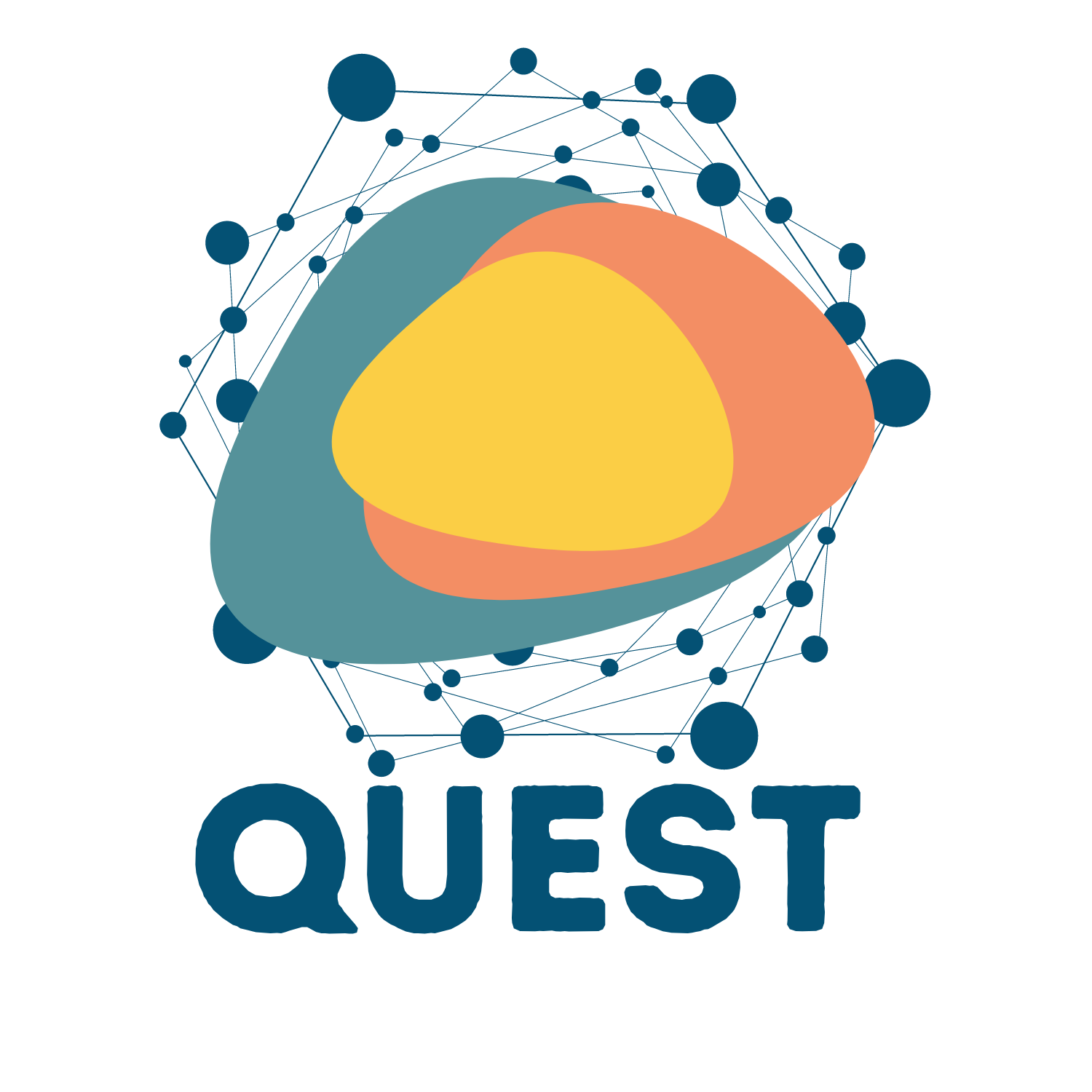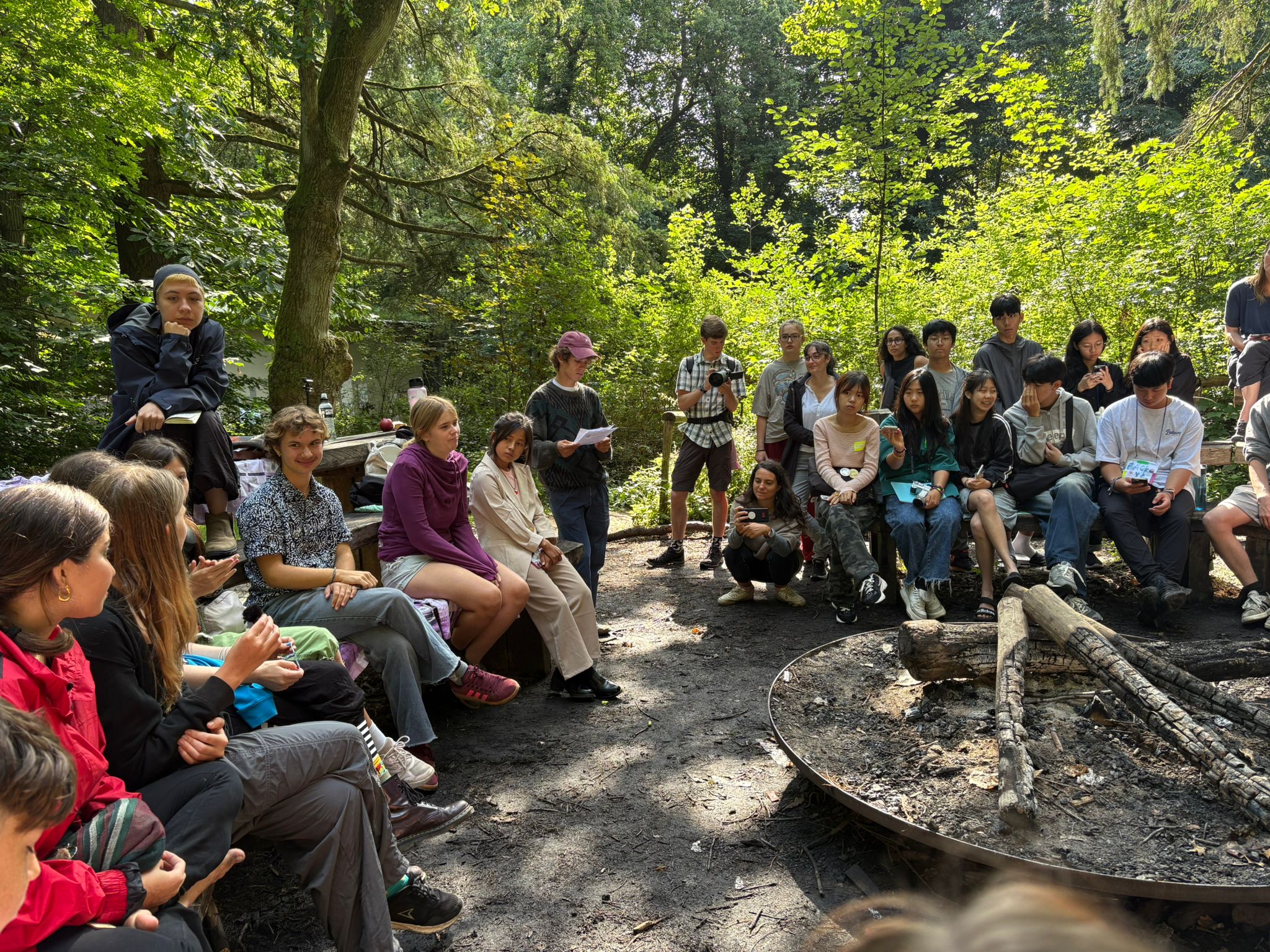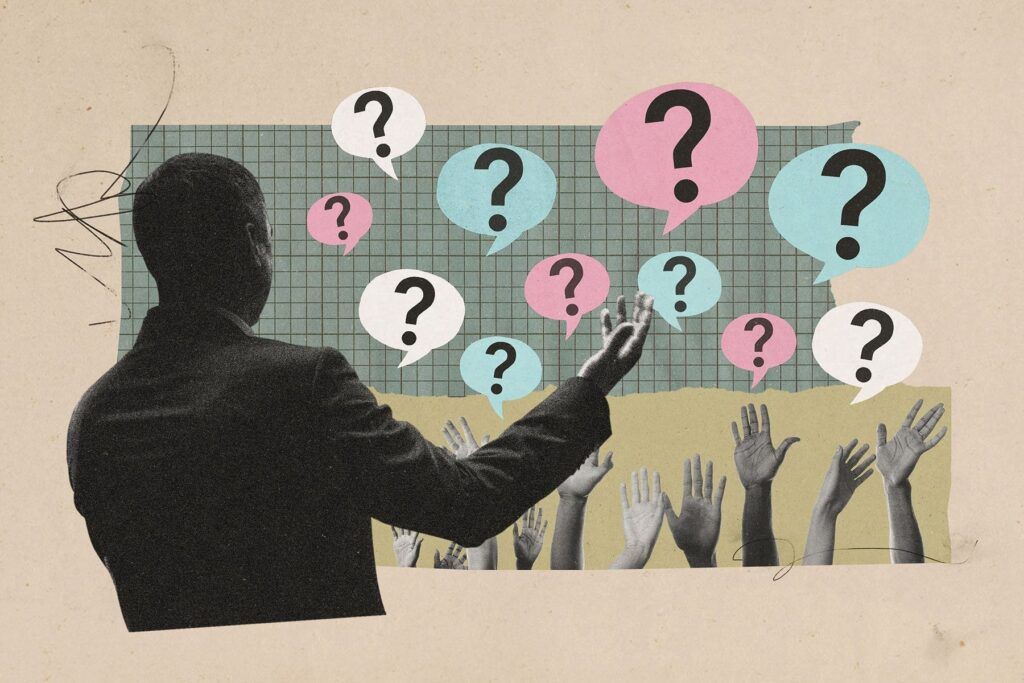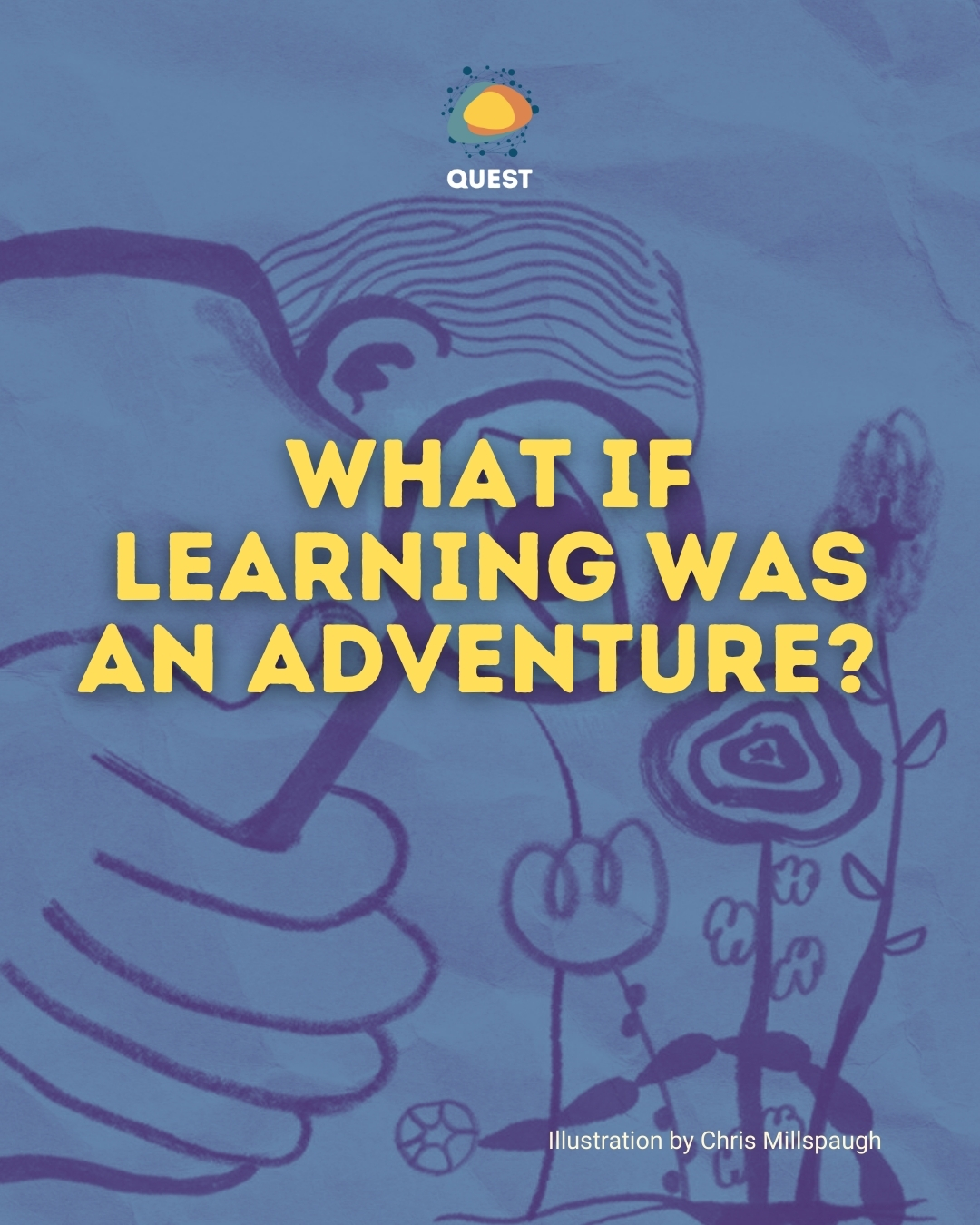final conference and youth-led panel with european meps
On October 17 th 2025, 35 young participants from Lithuania, Ireland, Bulgaria, and Italy gathered in Brussels, Belgium, to bring eco-anxiety into light in front of Members of the European Parliament (MEPs), youth workers, and peers.
The event was part of YOU-CARE, a project designed to bridge research, policy, and lived experience. Through a youth-led participatory action research approach, YOU-CARE creates spaces where young people investigate eco-anxieties together, make sense of their emotions, and turn that knowledge into action, including stepping into the policy arena with confidence.
The final conference on the 17th of October was a cumulative moment for the long efforts of the participants.
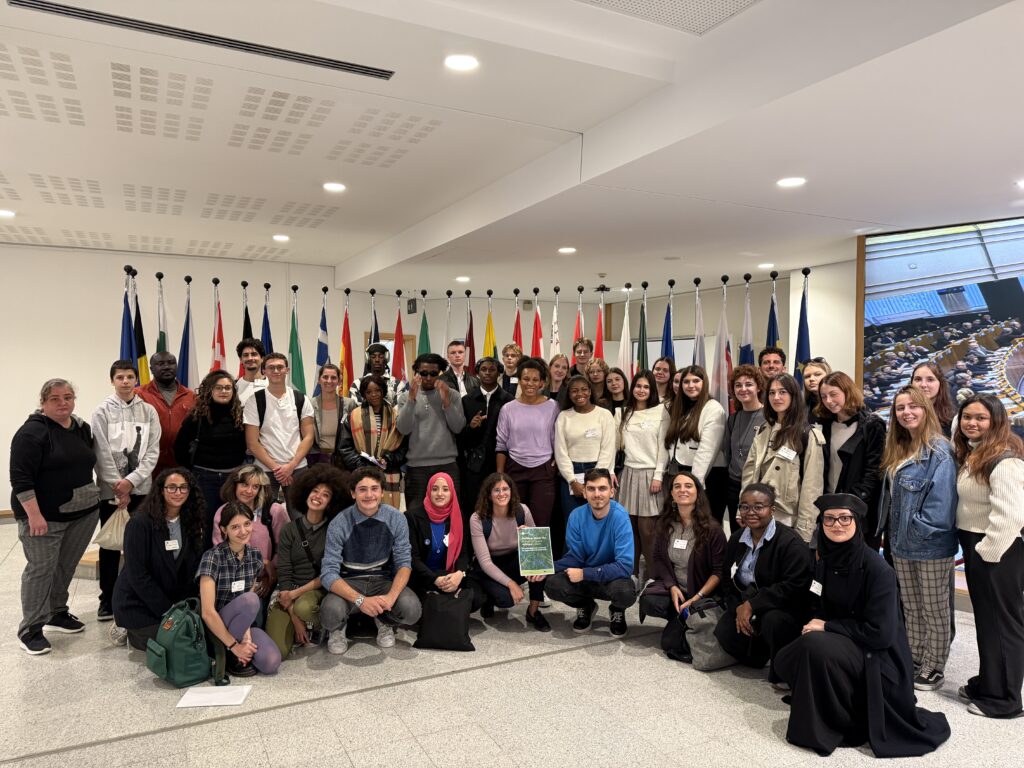
The Conference
The conference started already on the previous day, when the participants, project managers, and QUEST representatives met with MEP Nela Riehl and the head of cabinet of Commissioner Roxana Mînzatu, Alina Ujupan. These two meetings provided a unique opportunity for the young delegates to directly present their research findings and policy recommendations, as well as ask their questions including :
“If you could push for one new project in schools across the EU to help with eco-anxiety, what would it be? And how can we ensure these programs use transformative pedagogies rather than just adding climate change to the curriculum?”
“What initiatives have you supported or would you like to support (in the CULT Committee or in the Commission) that address the link between ecological crisis and psychological well-being of young people?”
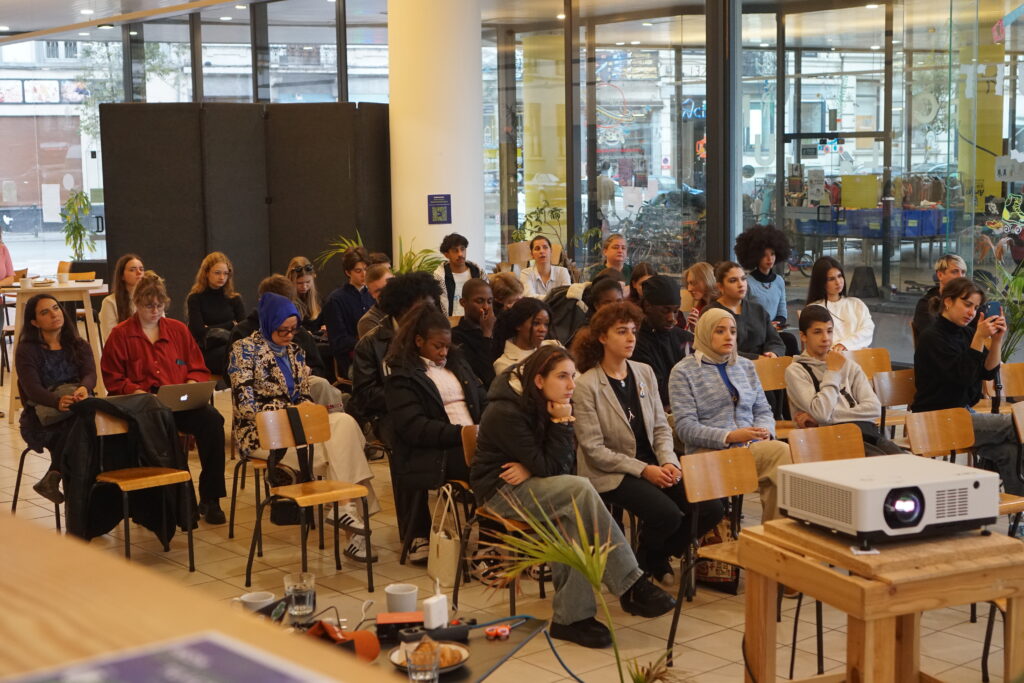
The conference took place in Anderlecht Expo, and was split into two parts : the first included keynote speeches, lively discussions with MEPs, and a presentation of results from each national group of young people. The afternoon was more focused on emotional expression through mediums like theatre of the oppressed and a documentary exploring the deeper roots of the climate crisis and the role of our economic system in driving it.
The conference was opened with an introduction to the project, the research, and approach to eco-anxieties while highlighting motivation for political action.
The keynote speakers included Princess Ogumefu, a young participant from Love and Care for People (Ireland); Matt Sowerby Youth Programme Lead in Europe at The Resilience Project; and Sara Bentass from QUEST. Princess was the first to speak about the loneliness of experiencing eco-anxiety. She authored a poem about climate change and noticing the changes happening in the world, worrying about where to go and what to do.
“Eco-anxiety is something I thought about for a while, but didn’t know how many people felt the same. I was super excited to get involved.”
Matt followed with a quote from Greta Thunberg: “Adults keep saying that they want to give young people hope, but I want you to panic. I want you to act like you’re in a crisis. Act like your house is on fire – because it is.”, which motivated him to become a climate activist. His involvement in climate activism led to the Resilience Project – an organisation that helps young people process climate change and build resilience. The audience was introduced to the 3 R’s of eco-anxiety that the project follows:
- Remedy – there is no one solution for eco-anxiety. The project adds nuance into turning anxiety into action, making sure to breathe in the process.
- Relation – climate change is relational – share your worries with others.
- Rational – climate change is rational. It’s psychologically healthy to be scared of scary things, and we need to give ourselves grace to feel climate anxiety.
Sara closed the keynote speeches with a message of hope. She spoke about how truly inclusive and participatory education transforms care into an actionable process, how young people act together across borders, building communities of care.
“The question is not whether young people will be part of the solution – they already are. The question is whether us adults, institutions will be brave enough to follow their lead. […] Hope is not a passive act of waiting. Hope is practical. Hope is alive in the collaborations, creativity, and the courage to imagine something different. Let’s all dare to care to dream for a better future. And to demand and act for it.”
Keynote speeches were followed by a presentation of an ecological crisis site in Bulgaria, just outside of Sofia, where a big mine-turned-lake has turned into a “ticking time bomb”. Youth from Bulgaria interviewed locals to research their understanding of the situation. The area, although beautiful, has become an active landslide, which can lead to a natural disaster. The interviewers created a short video documentary to present the results of the research.
In preparation of the planned youth-led panel with MEPs, the audience was familiarised with YOU-CARE’s recommendations for EU policy, which was one of the main results of the project. Mathilda Diaz from QUEST presented the recommendations and what is needed to address research results from positions of power. You can access the full youth demands here.
In summary, the recommendations are the following:
- Invite young people into decision-making processes → this is linked to the EU Youth Strategy and EU youth goals.
- Create a digital exchange platform for young people focused on climate anxiety, also opened to climate experts.
- Schools should play a role in supporting students to recognise and deal with deep emotions, linking wellbeing and environmental stewardship.
- Protect frameworks that protect our forests and biodiversity → continue and strengthen the legal protection of forests in and outside Europe!
- Protect the ocean from overfishing.
- Acknowledge the important role of agriculture in food sustainability and reduce food waste!
- Limit the production of (micro)plastics → this is a worrying reality that endangers our health.
After the audience gained the context of the work that had been done and presented to politicians, it was time for the youth-led panel with Director of ENV.A Valerie Drezet-Humez, MEP Benedetta Scuderi, and MEP Brando Benifei. The panel was facilitated by Tommaso, Sofia, Maria Laura, Gioele, Tommaso, and Teresa, and Simone.
The moderators had a lot of questions related to the actions of the EU in relation to eco-anxiety and the specific recommendations of the YOU-CARE project. Our guests were impressed by the research and its findings, congratulating the participants for raising such an important issue.
The first question was asking for the opinion of Valerie Drezet-Humez on the first practical steps towards creating the digital exchange platform. In her opinion, it is important to recognise the negative aspects that could happen in the online forum. There needs to be a moderator who would check information, making sure that misinformation is not being spread. How can we communicate with the young people of Europe while avoiding this risk? She highlights the importance of sharing best practices of grassroots ecological action, in reference to the presentation from the Bulgarian team. There are communities working against ecological collapse of their environment.
The next question to Ms Drezet-Humez was related to creating more youth panels to ensure that young people’s eco-axieties concerns are considered: “I don’t want to list all the things in place right now, but it’s important to realise that there are things in place. After COVID, the EU Commission has put more pressure on the mental health of young people. For the first time there is a Commissioner for intergenerational fairness in terms of creating new policies – we are taking into consideration the opinions of all generations. There are different levels of governance on a local level and national level, we understand the national law of Member States. There are youth ambassadors and networks that are active, which you can participate in. This will give the Commission more understanding as to how to act.”
Finally, the facilitators were advised to search for local funding opportunities in answer to the question of how to ensure that new transformative policies are applied when it comes to eco-anxiety. Acting locally is the best way to ensure that real money is going to the right cause.
The next set of questions were directed at MEP Benedetta Scuderi. The first question was related to drafting European laws in the EU Parliament – do these spaces include the impact of climate change on the mental health of young people? If not, how can we act?
Ms Scuderi highlights that this is her first mandate, but notices that there is a different perspective on the climate crisis in comparison to the previous Parliament. There is a lot of discussion around the energy industry, de-carbonisation, etc., but the focus is more on generating profit and staying competitive instead of focusing on the climate crisis. It is almost like the topic has become taboo, resulting in a deceleration of implementing mitigation actions. When climate change is mentioned, the speakers are often not taken seriously.
The European Parliament decided to focus only on de-carbonisation. Biodiversity loss, eco-degradation are not talked about – the discussions don’t include the complexity of the climate emergency. Scuderi expressed her concern in relation to this approach, and how the lack of understanding the impact of climate change on young people will evolve.
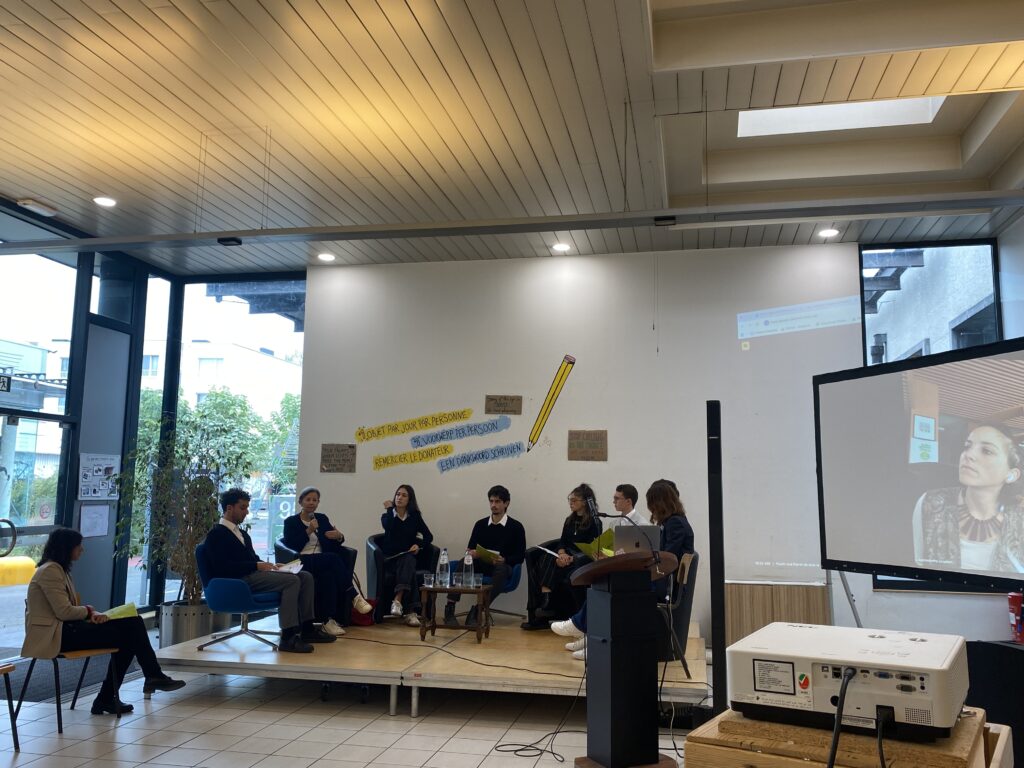
Ms Scuderi emphasised that we cannot increase long-term profit on a planet that is losing resources. Economic development must go with sustainable development, otherwise we will be facing a global collapse. We need to tell politicians that science is realistic and can be trusted.
If the sustainable transition doesn’t come soon, the economy will have to pay for the fallout. The planet will survive our downfall, but humanity will be the ones to pay for ecological collapse. It is already happening in Sicily, where the economy is strained because of a huge drought of this year. All the economic models are telling us that if we don’t act fast, we’ll have trillions of damage in the future – this is why the balance between sustainable and economic development is intrinsic.
The following question was directed to Brando Benifei: “In your opinion, do policymakers have the responsibility of reducing factors that cause eco-anxiety, or is it just psychological?”
Mr Benifei started by saying that there cannot be climate action without social justice, aka climate justice. Eco-anxiety is linked to everyone’s experience of climate change – our environment influences the opportunities of having an equal society. Europeans leave their homes because of the impact of climate change, and the impact of diminishing economic opportunities goes beyond Europe. Sicily was used once again as an example of the impact of climate change. The extreme weather conditions impact the availability of water, agriculture, economic opportunities and jobs.
There is a part of the political class that says young people are exaggerating and trying to depict them as using these kinds of arguments to push parties and agenda. This is not true – it’s a defining phenomenon of our generation. It impacts the lives of everyone.
Brando Benifei highlights that he has been elected three times, and this current Parliament is difficult to work on these topics related to climate change. This is why it’s important that the civil society continues to keep the topic alive in the streets, in schools, media, and papers – otherwise the topic will be forgotten. These considerations naturally bring questions about resources and where to get them. This is a power issues – not a debate of ideas. It’s important that democratic institutions do their part to balance the power to ensure that those who have resources can allocate them fairly.
Nearing the end of the panel, another question was directed at Valerie Drezet-Humez related to the difference between a territorial and generational eco-anxiety in young people. How can we ensure that no one is left behind?
Ms Drezet-Humez emphasised that the impact depends on how and where individuals live, but it’s important that no one is left behind. Once again, it’s important to shift our focus to local actions first before talking about EU influence – it’s important to keep a close eye on the political evolution, and to have mechanisms in place to intervene in the face of challenges.
The final question is directed at Benedetta Scuderi: “We have heard about the difficulties in making some MEPs aware of the consequences of climate injustice. We believe that to make them aware, we need to make them aware of experiences, not only emotions. What can you tell young people about your recent experience on the Global Sumud Flotilla?”
Ms Scuderi: “If you allow me, I will start from much earlier. I started politics very early in my life. I started activism on eco-anxiety because I panicked – I saw the political class doing nothing. And if they are doing nothing, we will not have a future. I went into a state of complete panic and paralysis.
From that, you can go two ways – you can stay paralysed, or you can commit. I decided to commit and get into a party, get into politics, to be someone who is doing something.
I was in the same situation when it came to the Flotilla. I was feeling the same anxiety and paralysis – we were doing events, missions, voicing concerns, and the EU parliament was still not doing anything. For 15 months we didn’t have a position on the situation in Gaza. I didn’t have any words left to shout in the institutions, and I think that the Flotilla gave me and a lot of other people an opportunity to act and do something.
When you have this feeling of injustice that is binding your heart – believe me, you can find a way to activate yourself. Protest, block a train, join political parties. The experience of the Flotilla gave us hope that we can still change something with our actions – if not through political institutions, then with our bodies.
Always find a way to turn anxiety into action. We need collective action – we can be part of the collective action to work on climate justice, social justice, the genocide in Gaza. Believe that the course of things can be changed.”
This powerful answer concluded the youth-led panel. The last part of the morning was dedicated to young people’s presentations of research from each participating country.
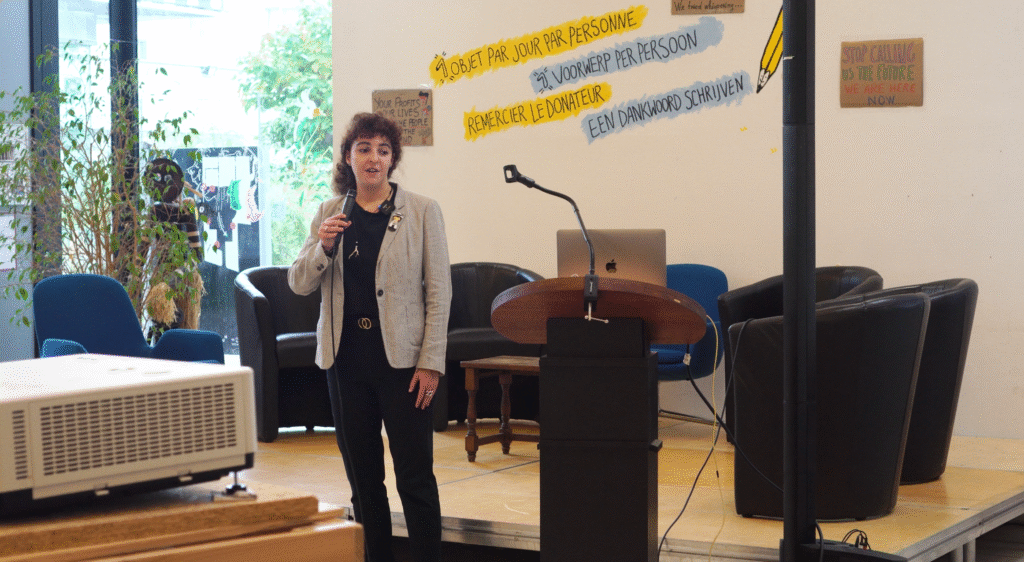
The Bulgarian team, besides the short documentary about the mine-turned lake mentioned earlier, have conducted street interviews with young people. They asked them about what they know about eco-anxiety, show images related to climate change, and ask how these images make the respondents feel.
A lot of respondents were not familiar with the exact definition of eco-anxiety, and had the opportunity to learn about the concept. After seeing the images, respondents felt outrage, worry, panic, and even grief.
The Irish team’s presentation was split into two artistic results. The first was a series of posters
encouraging the viewers to protect the oceans with small, everyday actions such as picking up trash. Not enough people are talking about eco-anxieties – be the person to start the topic!
The second part consisted of a rap song which expressed their experiences with eco-anxiety.
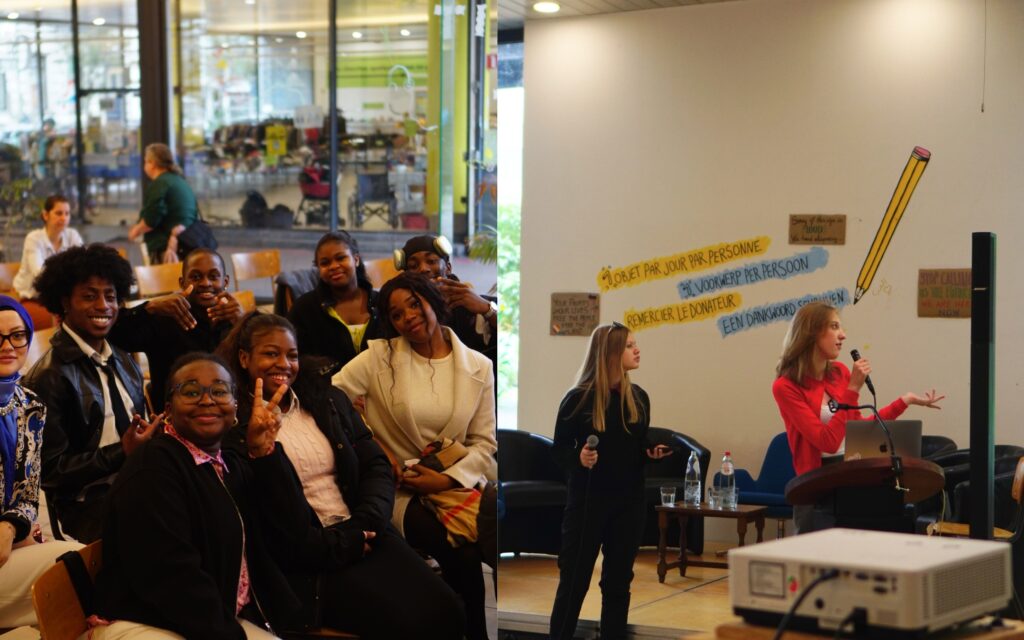
The Lithuanian team finished the national presentation of results with a trip down the entire YOU-CARE project. Starting with familiarising themselves with the phenomenon of eco-anxiety, they created a space for reflections and opinions that came to mind. After receiving the task to conduct research following the YPAR methodology, they used the previously gained knowledge to create focus groups.
The Lithuanian team hosted the YOU-CARE participants in Lithuania for an in-person exchange, where they could plan further actions and draft the recommendations.
The presentations concluded the conference morning. After enjoying lunch, we came back to the plenary to take part in more expressive activities. The afternoon was split into two main simultaneous activities : taking part in a theatre of the oppressed workshop, or watching The Cost of Growth (2025, Anuna de Wever & Lena Hartog).
Additionally, there was a collage station throughout the day where participants were encouraged to do a visioning exercise of The World We Want & The World We Don’t Want.
Overall, the final YOU-CARE conference was an innovative and important event in the discussion of bringing more awareness to eco-anxieties in Europe. The event was not only impactful on the politicians who were there to listen to young people, but more importantly on the youth themselves.
As QUEST, we will not stop bringing young voices to the front of the climate debate, and ensure that young people have the opportunities to be heard by decision makers. Thank you to all the voices and hands that helped shape the research, the policy recommendations, and this memorable final moment!

